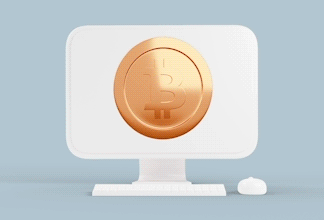Five Megatrends Changing the Way We Live, Work and Invest
Written by RBC iShares | Published on October 18, 2022
Written by RBC iShares | Published on October 18, 2022
The following is part of a series originally published by RBC iShares, a strategic alliance between RBC Global Asset Management and BlackRock Canada.
June 29, 2007 started off as just another Friday, with people going to work or school and waiting for the weekend to begin. Little did anyone know that at 6 p.m., the world would begin to dramatically change. That evening 164 U.S.-based Apple stores started selling the iPhone. While Apple’s then bulky mobile device started connecting people in ways they hadn’t been connected before, it also shifted people’s perception of what’s possible, especially when it comes to the ways in which technology can influence society. Its app ecosystem alone supercharged the social media revolution, spurred the rise of e-commerce, and disrupted industries, such as real estate and transportation.
Everyone now knows how the iPhone revolutionized the way we live, work and conduct business. What people may not appreciate, however, is just how rapidly technology has expanded since then. Within the last 15 years, vehicles have, in some areas, become autonomous; streaming video has revolutionized leisure time; and cloud-based collaboration tools have altered how – and where – we work. Now imagine what the next 15 years will bring. There’s no question that our world is going to evolve even more rapidly between now and 2037 than it has since 2007.
No one can predict with any certainty what might come next, save for one thing: society is undergoing large-scale and powerful secular shifts that will dramatically change our lives.
Rapid advancement in technologies is just one of the themes driving innovation. RBC iShares, a strategic alliance formed between RBC Global Asset Management and BlackRock Canada in 2019, has identified five megatrends as long-term forces shaping our future: technological breakthrough, demographics and social change, rapid urbanization, climate change and resource scarcity, and emerging global wealth.
“These are forces that are truly structural, so much so that they feel inevitable,” says Jeff Spiegel, Head of U.S. iShares Megatrend and International ETFs at BlackRock.
These megatrends aren’t just influencing society; they’re also affecting the investable universe, giving people more opportunities to buy into rapidly growing, game-changing companies, notes Spiegel. “These forces are so powerful and so long term that they become huge growth opportunities for the investors who can identify themes within them,” he says.
Five structural shifts changing the world
All five megatrends identified encompass several big ideas. ”Each of these are powerful, transformative forces that can change the trajectory of the global economy by shifting the priorities of societies, driving innovation and redefining business models,” says Steven Leong, Head of iShares Canada Product at BlackRock.
Technological breakthrough
You don’t have to be tech savvy to see how rapidly technology is evolving – just look around your home. In 2015, there were 15 billion internet-connected devices worldwide – gadgets that include voice activated assistants and smart home thermostats. That’s expected to grow to 75 billion by 20251. Everything from cybersecurity to health care to e-commerce technology is also rapidly evolving, especially since the pandemic began. Then there’s 5G, smart grids, robotics and automation, and other technologies that are still in their infancy that will have a major impact on our lives. According to RBC iShares, disruptive innovation will happen in two ways: through new solutions that can help resolve a significant constraint or challenge or via better alternatives to existing markets.
Demographics and social change
There’s been no shortage of awe-inspiring medical breakthroughs over the last few years, all of which are making people live longer and healthier lives. By 2040, the average global life expectancy is expected to reach 76 years, up from 72 today2. That same year, an estimated 1.3 billion people will be 65 or above, up from about 700 million in 20193. These increases will have a profound effect on health-care spending. Not only will health-care costs rise for every 65-plus person by 20404, but we’ll see much bigger investments in therapeutics, biotechnology and precision medicine, where individuals are treated with highly specific treatments.
Rapid urbanization
Despite the fact that more people are working from home, with many having moved to smaller locales during the pandemic as flexible work arrangements have become more acceptable, cities are still growing at an exponential rate. Over the next decade, the biggest cities will get even larger. New York, for instance, is expected to add 1 million more people by 2030, Shanghai’s population could rise by 8 million, while Delhi’s population is estimated to climb by 9 million5. To meet that demand, massive investments in infrastructure, transportation, communication, internet capabilities and housing will be needed. It is estimated that there is already $2 trillion in unmet infrastructure needs in the U.S. alone6 – a figure that will only increase as cities get more crowded.
Climate change and resource scarcity
Addressing the effects of climate change is a global priority, as evidenced by the fact that over 135 countries have already pledged to be carbon neutral by 20507. An expanding population and rising demand for food, energy and materials, is also putting pressure on the world’s finite resources. It’s still an open question as to how exactly the world will reach net-zero emissions, and how it will overcome its resource challenge, but no matter what there will be major investments in technology, infrastructure and renewable energy. By 2040, for instance, it’s expected that 56 million electric vehicles (EVs) will have been sold – up from 6.6 million today8. To accommodate this increased use of EVs, the U.S. will have built 500,000 EV charging stations across the country by 20309. As well, 60 per cent of China’s electricity could come from renewables by 203010.
Emerging global wealth
The world is only going to get wealthier, especially as the middle class in China and India continues to grow. By 2026, those two countries will have a combined population of about 3 billion people11, with many of them beginning to accumulate assets. At the same time, 90 per cent of new middle class entrants are in Asia12, while 44 people in India are escaping extreme poverty every minute13. As well, in 2020, 40 per cent of the world’s new billionaires came from China14, while 100 million South Americans have entered the financial system since the pandemic began15. This megatrend is about capturing newly affluent consumers in the emerging parts of the world.
“In recent years, the desire to invest in intuitive and relatable themes has been a powerful influence on markets. It has also been an important factor motivating new generations of investors who are building portfolios for the first time. Strategies that seek to capture these powerful growth themes are an increasingly important complement to more traditional sectors and portfolio building blocks,” adds Leong.
Diversify through ETFs
Many of the sectors that can benefit from these megatrends are still in their infancy, which makes it difficult to determine which companies will succeed or fail over the next few decades. At the same time, a lot of these markets are inaccessible to retail investors - unless you’re an ultra-high net worth investor, you can’t directly invest in global infrastructure projects or private startup companies.
High-quality and well-diversified exchange-traded funds (ETFs) can be an accessible way to gain investment exposure to these megatrends.
ETFs can provide exposure to a diversified group of companies, including rapidly expanding startups and more-established operations.
Investors can use thematic ETFs in a variety of ways, including as satellite investments to complement the core part of their portfolio (such as their Canadian equity or global equity holdings).
Learn more in How to Find and Research ETFs.
1 Source: Statista, Internet of Things (IoT) Connected Devices Installed Base Worldwide from 2015 to 2025
2 Statista, Projected global life expectancy 1990-2100, Jun 2019
3 2019 Profile of Older Americans, U.S. Dept. of Health and Human Services. May 2020
4 Agency for Healthcare Research and Quality. Mean expenditure per person by age groups, United States, 1996-2018. Medical Expenditure Panel Survey. Generated interactively: May 18 2021
5 Source: United Nations Department of Economic and Social Affairs, The World’s Cities in 2018
6 McKinsey & Co. June 2020
7 Visual Capitalist, Jun 2021
8 CNN, Sep 2019
9 Yahoo News, Aug 2021
10 Nature.com, Oct 2020
11 Visual Capitalist. "The Population Race: A 300-Year Look at China vs. India" Nov 2020
12 Bank of America Merrill Lynch “10 things for the next 10 years, Nov 2019
13 Washington Post, Jun 2018
14 South China Morning Post as of February 2020
15 Mastercard, Nov 2020
RBC Direct Investing Inc. and Royal Bank of Canada are separate corporate entities which are affiliated. RBC Direct Investing Inc. is a wholly owned subsidiary of Royal Bank of Canada and is a Member of the Investment Industry Regulatory Organization of Canada and the Canadian Investor Protection Fund. Royal Bank of Canada and certain of its issuers are related to RBC Direct Investing Inc. RBC Direct Investing Inc. does not provide investment advice or recommendations regarding the purchase or sale of any securities. Investors are responsible for their own investment decisions. RBC Direct Investing is a business name used by RBC Direct Investing Inc. ® / ™ Trademark(s) of Royal Bank of Canada. RBC and Royal Bank are registered trademarks of Royal Bank of Canada. Used under licence.
© Royal Bank of Canada 2023.
There may be commissions, trailing commissions, investment fund management fees and expenses associated with investment fund and exchange-traded fund (ETF) investments. On or after June 1, 2022, any trailing commissions paid to RBC Direct Investing Inc. will be rebated to clients pursuant to applicable regulatory exemptions. Before investing, please review the applicable fees, expenses and charges relating to the fund as disclosed in the prospectus, fund facts or ETF facts for the fund. Mutual funds are not guaranteed, their values change frequently and past performance may not be repeated. For money market funds there can be no assurances that the fund will be able to maintain its net asset value per security at a constant amount or that the full amount of your investment in the fund will be returned to you.
RBC iShares ETFs are comprised of RBC ETFs managed by RBC Global Asset Management Inc. (RBC GAM) and iShares ETFs managed by BlackRock Canada Limited (BlackRock Canada). RBC GAM and BlackRock Canada entered into a strategic alliance to bring together their respective ETF products under the RBC iShares brand, and to offer a unified distribution support and service model for RBC iShares ETFs.
Any information, opinions or views provided in this document, including hyperlinks to the RBC Direct Investing Inc. website or the websites of its affiliates or third parties, are for your general information only, and are not intended to provide legal, investment, financial, accounting, tax or other professional advice. While information presented is believed to be factual and current, its accuracy is not guaranteed and it should not be regarded as a complete analysis of the subjects discussed. All expressions of opinion reflect the judgment of the author(s) as of the date of publication and are subject to change. No endorsement of any third parties or their advice, opinions, information, products or services is expressly given or implied by RBC Direct Investing Inc. or its affiliates. You should consult with your advisor before taking any action based upon the information contained in this document.
Furthermore, the products, services and securities referred to in this publication are only available in Canada and other jurisdictions where they may be legally offered for sale. If you are not currently a resident of Canada, you should not access the information available on the RBC Direct Investing Inc. website.
iSHARES and BLACKROCK are registered trademarks of BlackRock, Inc., or its subsidiaries in the United States and elsewhere. Used with permission.

The U.S. reciprocal tariffs announced have been large and broad-based, but critically exempt Canada and Mexico (at least for now)

Investor interest in Bitcoin is increasing – learn about crypto ETFs

The effects of tariffs can be wide ranging, both economically and behaviourally.